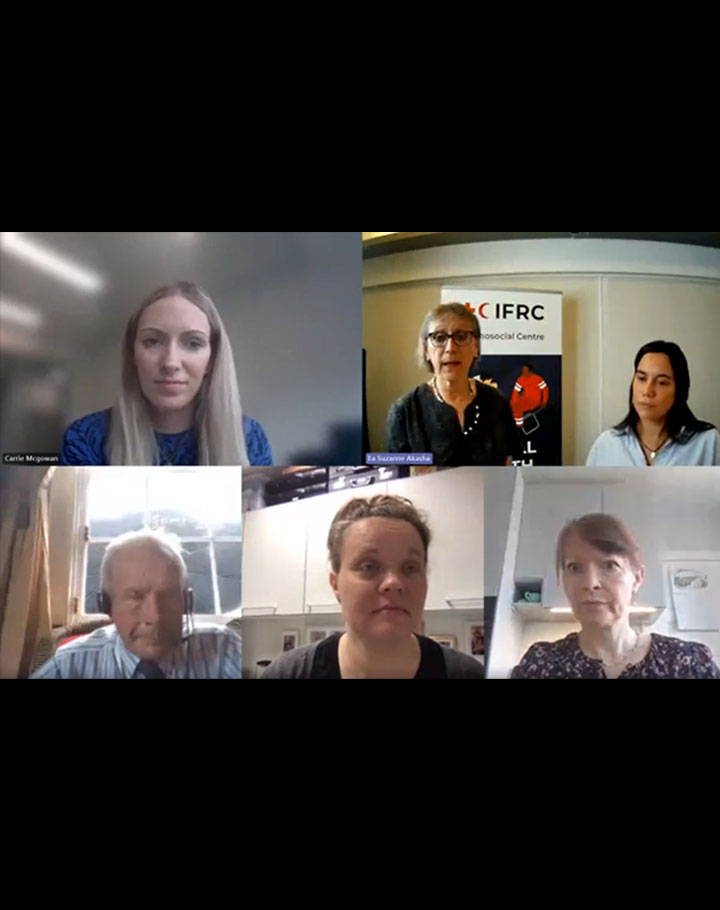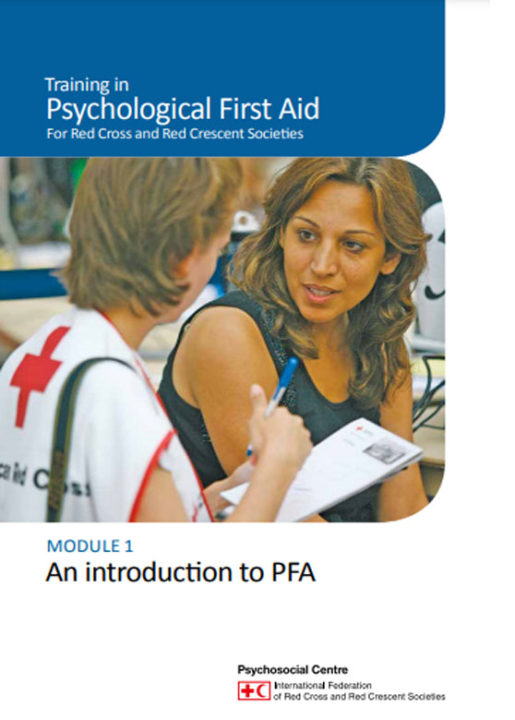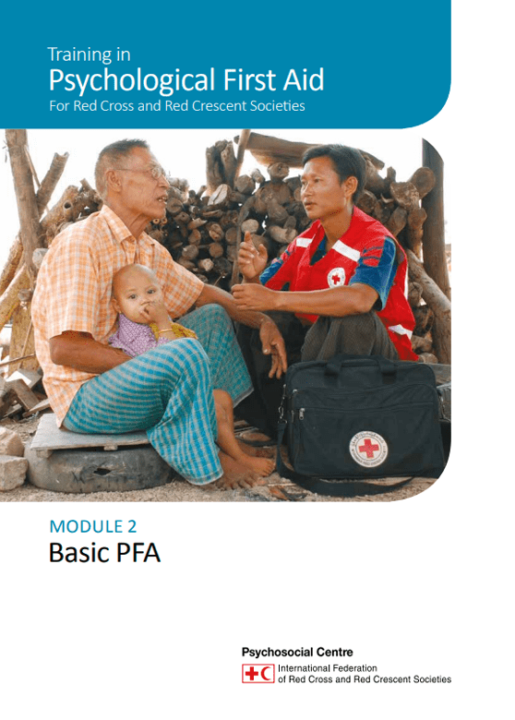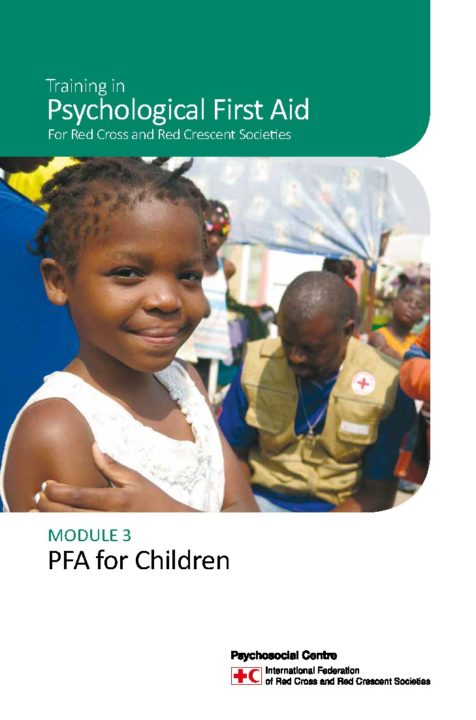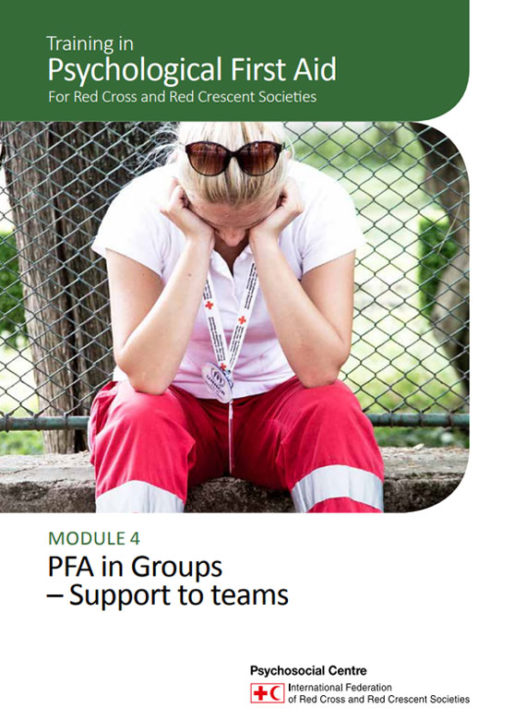The PFA for all Pledge Group is hosting an open webinar on Psychological First Aid in complex situations.
Based on the understanding that PFA should be trauma-informed, this webinar focuses on PFA and complex reactions and situations. Presenters from the Irish and Danish Red Cross present on PFA and complex reactions and situations in prison environments and a new PFA module on complex reactions and situations that have been field tested in Ukraine in the spring of 2023.
PFA is an entry point to assist people in acute distress. It is a simple, yet powerful way of supporting someone, to feel calm, safe, and supported, and to link to more specialized support if needed. Learning PFA skills and understanding reactions to crises empowers the helper to assist others and to apply the same skills to their own crises. Everyone can learn PFA skills, including staff and volunteers who are responding to humanitarian needs as well as at-risk communities themselves. The PFA for all Pledge Group has been active for two and a half years since its adoption in December 2019.
The signatories have pledged to:
- Advocate for attention to mental health and psychosocial support in humanitarian response, including the importance of psychological first aid.
- capacity and attention to the protection and wellbeing of staff and volunteers in relevant policy fora.
- Ensure that all staff members, managers and (where applicable) volunteers are trained in psychological first aid as relevant to their situation, sector, and role.
- Training of community members, in communities at risk, in psychological first aid as relevant to their situation.
- Integrate psychological first aid principles in First Aid training.
- Strengthen existing or build new systems for developing PFA skills and capacities, and provide mentoring and supervision, including at the local level.


